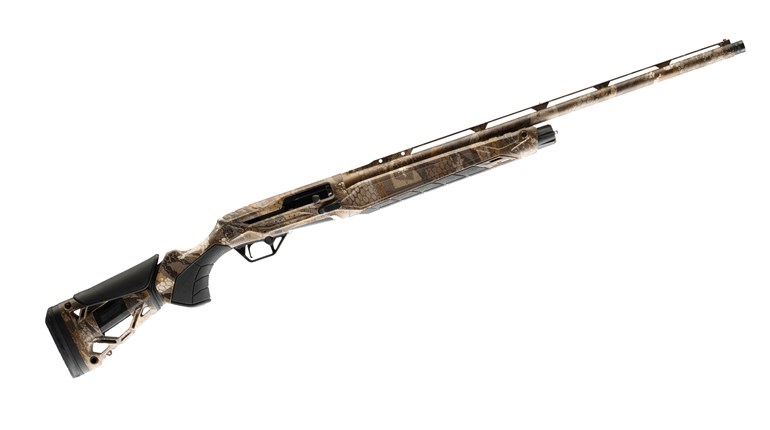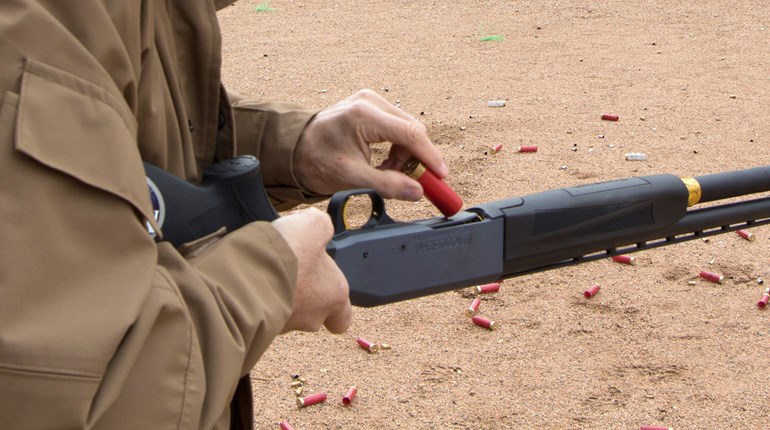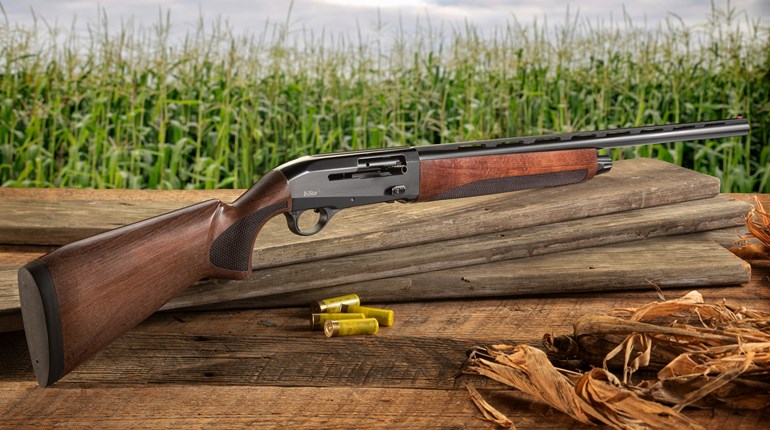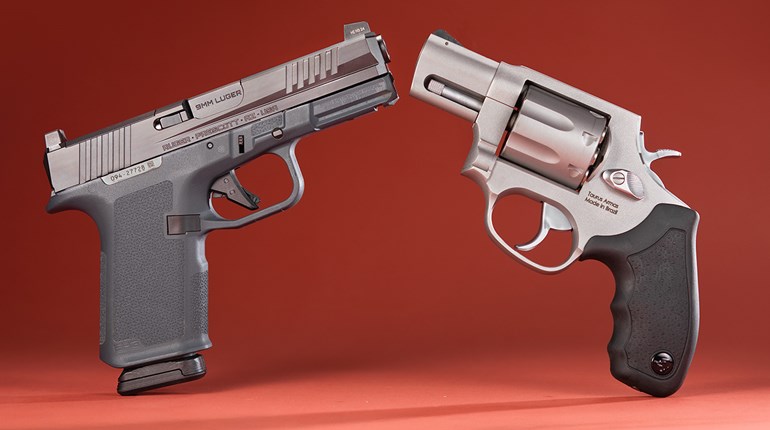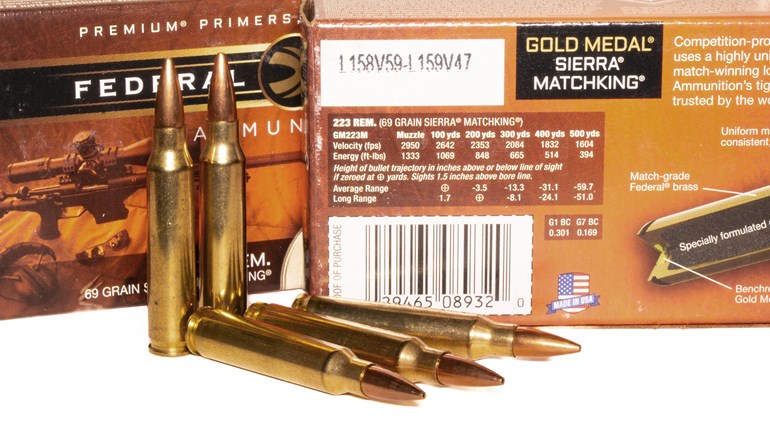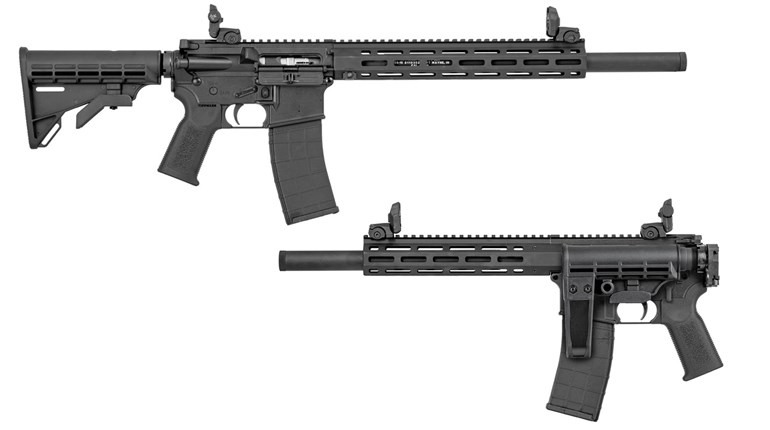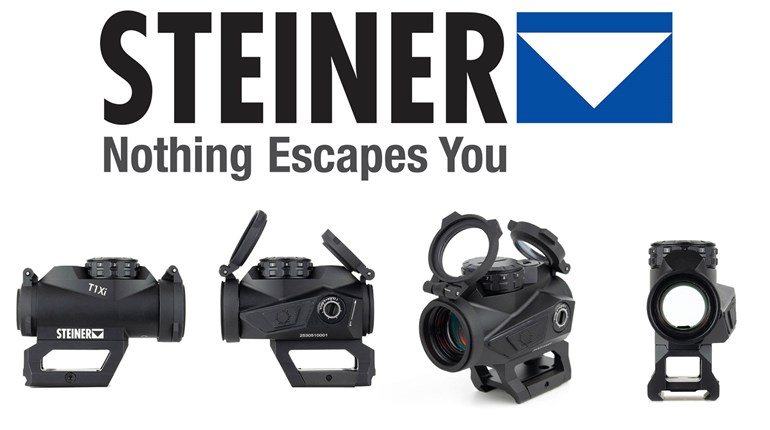
In the competitive world of 3-gun, many participants decide what class to enter based on their prowess at reloading a shotgun magazine. Those unwilling to spend hours practicing the difficult act of speed-reloading a typical tube-magazine (TM) shotgun often pick the Open class so they can use either speedloaders or detachable magazine (DM) shotguns like the Saiga 12 to avoid being embarrassed. Fact is, a shotgun can be the most intuitive and deadliest short-range weapon available, until it must be reloaded. Then it’s a real conundrum.
So, the debate becomes whether home defenders should choose a DM shotgun for the faster reloading, or should they continue to depend on their proven TM shotguns? Here are some pros and cons of each.
Tube Magazine Shotguns
Traditional, tube-style shotgun magazines run parallel to the barrel underneath it so they don’t take up much space or alter the gun’s ergonomics in any significant way. (Mag extensions can be purchased for most popular defensive shotguns, so when I speak of tube magazines, I’m talking about those that hold seven to nine rounds.) If you count the shell in the chamber, eight to 10 rounds of 12 gauge is a lot of firepower in terms of energy downrange, and for years the average home defender has figured this to be enough for all but the craziest of scenarios. What’s more, name-brand TM shotguns rarely fail, as they have been around since the late 1800s.
The TM’s downfall is its operation of single-shell reloading that, of course, make the shooter look like a three-toed sloth compared to dropping an empty box magazine to the ground and jamming a loaded one home in an instant. For reference, pro shotgun competitors can reload eight rounds in about 3 seconds via the “quad-load method,” but this is not only unrealistic for home defenders, but impractical as it requires special gear and mandates lowering the gun. Tactical, one-at-a-time, weak-hand shotgun reloading takes about a second per shell if loaded from a sidesaddle without lowering the gun.
In sum, TM shotguns hold an average of nine rounds, are non-cumbersome and ultra-reliable but require about one second per shell to reload under the best of conditions.
Detachable Magazine Shotguns
In the last few years several viable options in DM shotguns have come to market. In addition to recent models like the Remington 870 DM and Mossberg 590M, other examples are the Saiga 12 and variants, Molot VEPR 12, Utas Defense UTS XTR, TriStar KRX and others. Most magazines hold five rounds due to importation laws, although a few aftermarket, 10- and 20-round options exist. For this article, we’ll compare typical five-round magazines, because going bigger generally exacerbates the problems I will highlight.
No doubt, a DM is easier and faster to swap out than it is to load individual shells in a tube. A DM shotgun takes about 1.5 seconds to reload, on average, and it doesn’t require much training. A detachable mag gun also grants the home defender more options in conditions of readiness. He or she can keep the shotgun bedside, completely unloaded, and fully load it in a second or two by simply inserting the magazine and closing the action.
But, don’t think that just because a detachable magazine is easy to swap that it’s automatically superior to a tube. One reason is because many of the current shotguns that accept detachable mags—and the magazines themselves—aren’t without problems.
Most of these problems arise from the fact a 12-gauge shotshell is .75-inch wide and rimmed. That means that a detachable magazine, along with its spring and follower within, must be about 7 inches long just to hold five rounds. Its spring must be stout enough to counter the effects of gravity upon these heavy shells, but not so stiff that it can’t be loaded by hand. Rimmed shells means that they cannot sit flush on each other, so the longer the magazine, the more the shells become offset and reliability suffers.
Finally, consider that a 7-inch-long appendage hanging from the gun’s receiver alters the natural balance of the shotgun and therefore spoils one of the weapon’s main advantages: its intuitiveness to point where the shooter looks.
The detachable magazine also makes the gun more cumbersome. While this is true on any magazine-fed rifle, it’s perceived to be worse if the shooter is accustomed to more-traditional shotguns. If you lift the gun’s barrel up as if to open a door and pie a room, snagging a door frame with the mag is a very real possibility.
So the question is, are the detachable mag’s positives worth the negatives when tube-fed-magazine guns are supremely reliable and usually ample for home defense scenarios? At this time, I don’t think so. And here’s why:
With an eight-plus-one TM gun, the shooter can fire nine shots, reload five from the sidesaddle and fire again for a total of 14 shots with a five-second delay (with practice). On the other hand, with a five-round DM gun, the shooter can fire six shots, swap the mag and fire five more for 11 rounds with a 1.5-second delay.
At the time of this writing, the first nine shots from the proven TM gun are, on average, more reliable than the six shots from the DM gun. (As more major shotgun manufacturers begin producing DM guns, this is likely to change.) To my wingshooting hands, the tube-fed gun is better-balanced for quicker and more intuitive follow-up shots. That’s because as of now the majority of DM shotguns handle more like rifles and do not “cheek” as naturally as traditionally stocked shotguns. This means an increase in felt recoil and potentially slower follow-up shots. So, if you intend to shoot your shotgun like a rifle and thereby negate one of its inherent advantages, you’re likely better off buying a carbine with 30-round mags to circumvent this debate entirely.
In sum, the benefits of tube-magazine-fed shotguns outweigh the speed offered by detachable-magazine shotguns at this time. You might disagree, but before you buy any shotgun, I’d urge you to shoot it first. Regardless of which option you choose, I suggest practicing with whatever shotgun you have. Chances are, it will do just fine.












